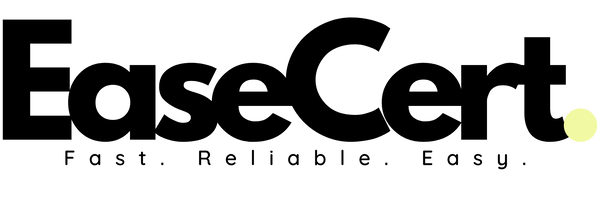
GPSR Technical Documentation Example: A Practical Guide for Compliance
The General Product Safety Regulation (GPSR) requires businesses selling consumer products in the EU to maintain comprehensive Technical Documentation that demonstrates product safety and compliance. This documentation must be available to market surveillance authorities for up to 10 years after the product is placed on the market.
Below is a practical example of what a complete GPSR Technical Documentation file should include, based on best practices and regulatory requirements.
What is GPSR Technical Documentation?
GPSR Technical Documentation is a structured set of documents that demonstrate a product’s compliance with EU safety regulations. It must provide detailed information about the product’s design, manufacture, and intended use, ensuring authorities can assess its safety.
Why is GPSR Technical Documentation Important?
- Compliance Assurance: Proves your product meets EU safety standards.
- Market Access: Required for selling in the EU, including on marketplaces like Amazon and eBay.
-
Risk Mitigation: Reduces the risk of recalls, fines, or legal issues.
GPSR Technical Documentation Structure – Example Breakdown
1. Product Description
Provide a clear overview of the product, including:
- Product name, model number, and SKU
- Intended use and target user group (e.g., children, adults, etc.)
- Technical specifications (e.g., power requirements, material details, etc.)
- Images or diagrams showing key product features
Example:
- Product Name: Wireless Bluetooth Box
- Model Number: WBB-988
- Intended Use: Portable audio device for indoor and outdoor use
2. Bill of Materials (BOM)
A detailed list of all components, including:
- Material descriptions
- Supplier information
- Component part numbers
Example:
|
Component |
Material |
Supplier |
Part Number |
|---|---|---|---|
|
Speaker Housing |
ABS Plastic |
ABC Plastics Ltd |
123-456 |
|
Circuit Board |
FR4 Fiberglass |
DEF Electronics |
789-101 |
|
Power Supply Adapter |
Polycarbonate |
XYZ Components |
111-222 |
3. Safety and Risk Assessment
Outline potential product risks and the steps taken to mitigate them. The assessment should identify:
- Potential hazards (e.g., electrical shock, choking risk)
- Risk mitigation measures (e.g., improved insulation, warning labels)
Example:
- Hazard Identified: Overheating during charging
- Mitigation: Integrated thermal cutoff to prevent overheating
4. Test Reports and Certificates
Include relevant test reports and certificates that confirm product compliance with EU standards, such as:
- EN 71 for toy safety
- EN 62368 for electronic equipment
- RoHS for hazardous substance restrictions
Example:
- Electrical Safety Test Report (EN 62368-1)
- Chemical Test Report (RoHS compliance)
5. User Instructions and Safety Information
Provide clear guidance on product use, including:
- Assembly instructions
- Maintenance and cleaning advice
-
Safety warnings and precautions
Example Warnings:
⚠ WARNING: Plastic bag can cause suffocation. Keep away from children.
⚠ WARNING: Choking hazard – small parts. Keep away from children under 3 years.
⚠ WARNING: Allergy risk – contains nickel.
6. Traceability Information
Ensure your documentation includes information for tracking and traceability:
- Manufacturer’s name, address, and contact details
- EU Authorised Representative details (if applicable)
- Importer and distributor information
Example:
- Manufacturer: ABC Electronics Pty Ltd, Brisbane, Australia
- EU Authorised Representative: EaseCert | GPSR Compliance, Germany
7. Declaration of Conformity (DoC)
This legal document confirms your product complies with all relevant EU regulations. It should include:
- Product identification (model name, serial number)
- References to applicable EU standards
-
Manufacturer’s signature and date
Example Declaration of Conformity:
I hereby declare that the product “WBB-988 Wireless Bluetooth Box” complies with GPSR (EU) 2023/988.
8. Market Surveillance and Incident Reporting Procedures
Include details about how you will:
- Monitor product performance after sale
- Manage consumer complaints and product recalls
- Report safety incidents to EU authorities
9. Packaging and Labelling Compliance
Ensure your product packaging meets GPSR requirements, including:
- Clear product identification
- Manufacturer contact details
- Warning labels and recycling symbols where required
10. Digital Information (Optional but Recommended)
To enhance traceability, consider adding QR codes or digital links to your product’s safety and compliance details.
Example QR Code Use:
A QR code linking to the online version of your product’s technical documentation or safety instructions.
Checklist for GPSR Technical Documentation
Before submitting your technical documentation, ensure the following are included:
- Clear product description and specifications
- Detailed Bill of Materials (BOM)
- Comprehensive safety and risk assessment
- Relevant test reports and certifications
- Clear user instructions and warnings
- Manufacturer and Authorised Representative details
- Signed Declaration of Conformity
- Procedures for post-market surveillance and incident reporting
- Packaging and labeling compliance
Conclusion
Creating comprehensive GPSR Technical Documentation is essential for ensuring your product meets EU safety requirements. By following this example structure, businesses can efficiently prepare compliant documentation that satisfies regulatory authorities and protects consumers.
For tailored support with GPSR compliance, including certification and technical documentation preparation, EaseCert offers expert services to streamline your compliance process.
Ensure Your Compliance & Maintain EU Market Access
Appoint an EU Responsible Person for GPSR compliance. Meet all legal requirements, secure your EU market access, and avoid regulatory penalties. Download our GPSR checklist for a step-by-step guide to ensure your products meet EU safety, labeling, and documentation requirements, helping you stay compliant and successfully navigate the EU market. Don’t risk non-compliance. Partner with EaseCert as your EU Authorized Representative.
